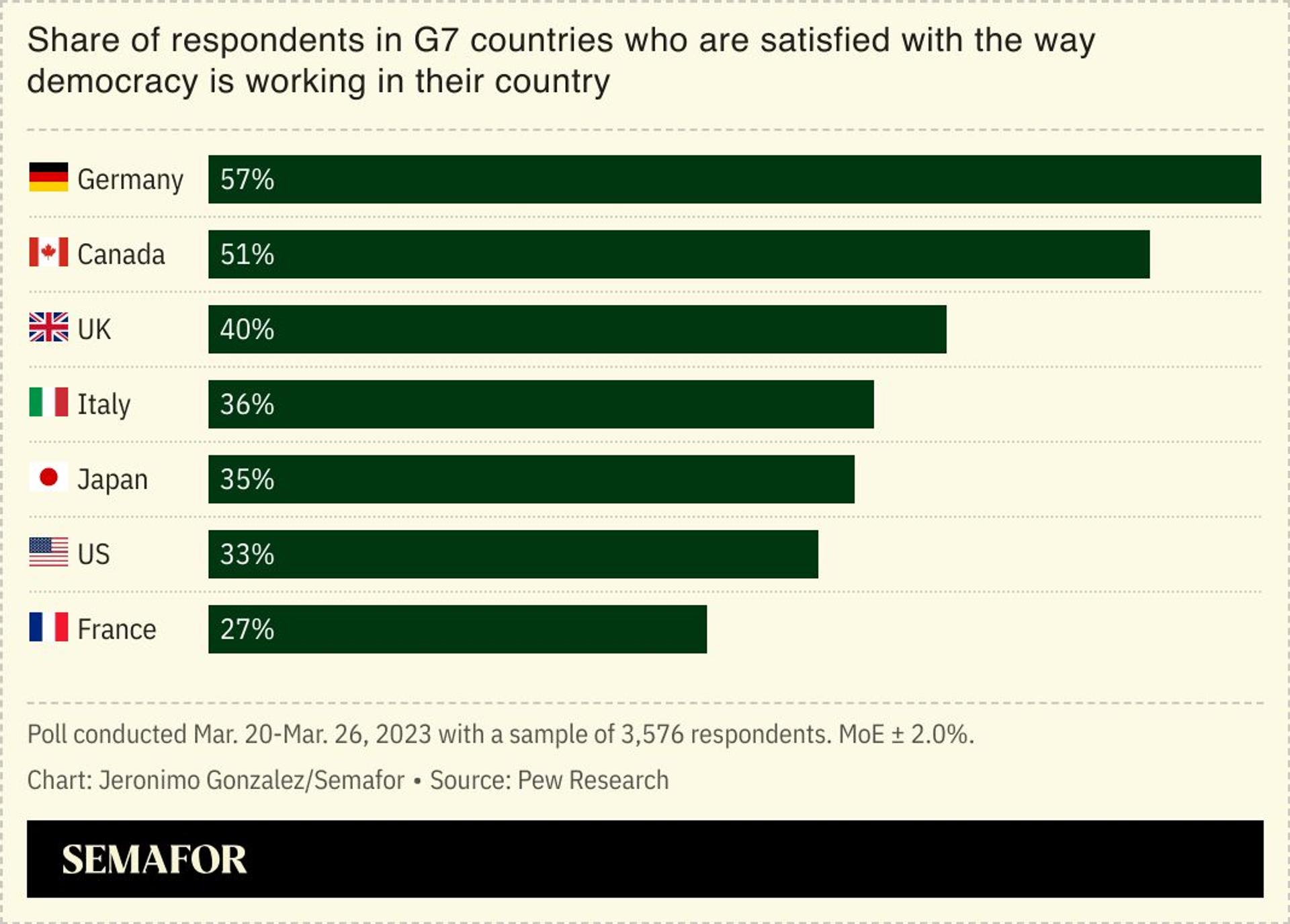The News
Virtually all of the member countries in the “group of 7” now face significant political uncertainty.
Beyond the US’ knife-edge election, Germany’s “traffic-light” coalition government is verging on collapse with crisis talks set for this week; Canada’s prime minister is languishing in the polls and has faced calls from within his party to step aside; Japan’s ruling parties decisively lost recent elections, throwing the country “into unchartered territory”; France’s new prime minister needed far-right support to survive a no-confidence vote and is grappling with a hefty budget deficit; and traders sold British bonds and the pound over concerns the country is borrowing too much.
The lone possible exception: Italy’s hard-right Prime Minister Giorgia Meloni, who is successfully pushing her country’s policies to the right while growing her appeal abroad.

SIGNALS
Traditional parties are being increasingly rejected by voters
Incumbent or traditional parties are being increasingly rejected by voters who yearn for more diverse political representation, with multiple elections this year delivering crushing defeats and near-misses to incumbents and their major opposition alike, Reuters noted. In turn, populist parties on both the right and left have moved decidedly from the margins to the mainstream in recent years, particularly in Europe, with many propelled by economic woes and rising anti-immigration sentiment. While these smaller, more extremist parties have largely been curbed by coalition dealing, as in France and Germany, their rise marks “an increasing fragmentation of European party systems, at both the national and European levels,” the European Council on Foreign Relations noted.
Why Italy may be the exception to the rest of G7
Italy’s government under Giorgia Meloni seems to have fallen into a pattern, an Italian journalist argued in The New York Times, whereby her government does something that sparks progressive outcry, but nothing more: “The policy stays, Ms. Meloni’s ratings remain strong, and Italy inches to the right with little more than a shrug.” By pushing policies that conceivably fall within the auspices of mainstream right-wing politics, and largely avoiding oversteps on social issues, she has strengthened her position both in Italy and abroad across the political spectrum. In August, even left-leaning UK Prime Minister Keir Starmer praised her “remarkable progress” in curbing illegal immigration, Politico noted.
Health of Japan’s democracy under scrutiny
The recent electoral loss for Japan’s ruling majority coalition pitched the world’s fourth-largest economy into “political instability,” Moneyweek wrote. The last time the party lost its majority, Japan ran through three prime ministers in three years. On the other hand, some critics have also argued that prolonged rule by a single party also suggests democratic degradation: “Westerners always overlook Japan when they talk about democratic backsliding,” said a US-Japan expert to The Washington Post. “But Japan is also a serious case in which you can question whether it’s a real democracy at this point, in any meaningful sense.”

